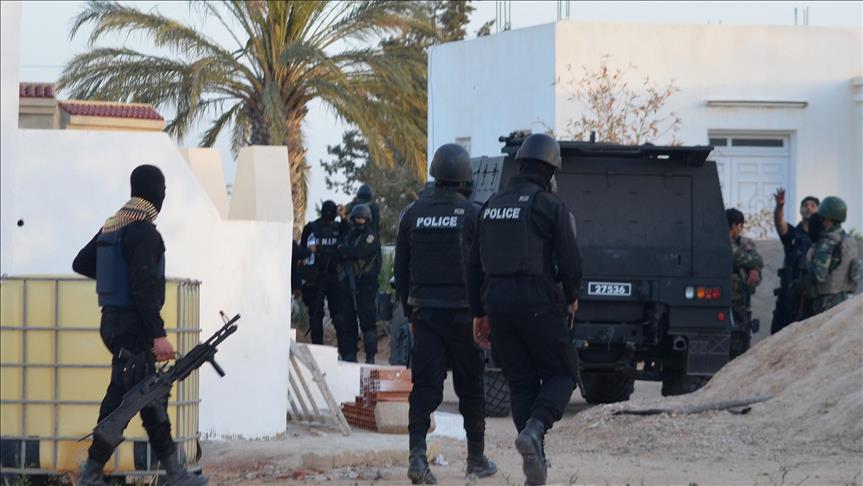
Tunisia
By Talel Nacer
BEN GARDANE, Tunisia
My last visit to Ben Gardane, a coastal town in southeastern Tunisia, was in March, shortly after Daesh militants tried to seize the city.
From capital Tunis to our hotel in Ben Gardane, few security checkpoints could be seen.
But as we approached the town’s northern entrance, we could see that cement blocks had been erected around the Jallel army base -- the target of the recent militant attack.
The perpetrators of the March 7 attack -- in which 45 militants and 13 Tunisian security personnel were killed -- came from neighboring Libya, which for years has enjoyed a close affinity with Tunisia.
Five years after the bombing of Pan Am flight 103 over Lockerbie, Scotland, the UN Security Council passed a resolution sanctioning Libyan airline companies. The sanctions led to a massive shortage of goods coming into Libya.
Ben Gardane, therefore, became a vital route for informal commerce between the two countries, with many Tunisians smuggling food, construction supplies and pharmaceutical goods across the border -- mostly in exchange for Libyan oil.
In Ben Gardane’s central market, unemployed youth had gathered in small groups in hopes of landing small day jobs. Numerous trucks with Libyan license plates, laden with merchandise from Tunisia, could be seen traversing the city.
Since the attack, street activity appeared to have returned to normal. Shops have been open since the early morning and the market is busy, with taxis ferrying people from the countryside to the city center.
Tense border
The nearby border with Libya, however, remains as tense as ever. A number of local people have recently been shot dead near security checkpoints.
The Tunisian authorities have recently stepped up security in the area, creating a militarized "buffer zone" and digging a 250-kilometer trench with the stated aim of stopping smuggling and preventing "terrorist infiltration".
We visited the family of one young man who had been killed at the border only days before.
According to his family, Ridha Ben Amer was shot by Tunisian border guards while walking home after meeting his friends. But according to Tunisia’s Interior Ministry, Ben Amer had been wanted for "joining a terrorist group".
Nasr Ben Mohamed, the slain boy’s 70-year-old father, told us: "My son was shot dead but he wasn’t a terrorist … If the authorities have proof he was doing something illegal, why not just arrest him?"
"We’re simple herders and have permission to herd in the [border] zone," he added. "We defended the area when the terrorists came; the people stood with the security forces [against Daesh]."
Ridha’s 35-year-old brother chimed in: "My brother wasn’t in the banned area [when he was shot]."
"He was arrested before for smuggling cigarettes," the grieving brother went on. "They [the authorities] took him to Tunis and tortured him, then released him because they knew he wasn’t a terrorist."
'Lives don't matter'
Ben Gardane’s southern exit leads to the Ras Jdir Border gate with Libya. On both sides of the road, smuggled goods of all kinds are being exchanged for Libyan oil, Tunisian dinars, Libyans dinars, euros and U.S. dollars.
"Lives here don’t seem to matter," one Ben Gardane resident told Anadolu Agency on condition of anonymity. "The army and national guards fight over who controls the roads [used by smugglers]."
"Smugglers who refuse to pay bribes are shot," he said. "When Daesh attacked, the smugglers begged the security forces to give them arms [to fight Daesh], while security personnel were asking for [smuggled] cigarettes."
Miloud, a 35-year-old teacher who hasn’t been able to land a government job, recently resorted to the local smuggling sector.
"There are no factories here, no development," he told Anadolu Agency. "So far they have killed more than 60 people [near the border]. Why don’t the security forces stop them before they reach the area? Why kill them?"
"We’re thinking about digging a separate cemetery for those shot dead by security forces," he said. "It will be a stigma on the state which has killed more than 60 of its citizens who were simply trying to earn a living."
"Now I live on smuggling and my son will likely do the same," Miloud lamented. "It’s the only way to earn a living here."
He added: "Meanwhile, the real smugglers, the big-time smugglers dressed in suits, are in La Goulette Harbor [an upscale part of Tunis] -- not bringing tea from Libya."
Anadolu Agency website contains only a portion of the news stories offered to subscribers in the AA News Broadcasting System (HAS), and in summarized form. Please contact us for subscription options.







